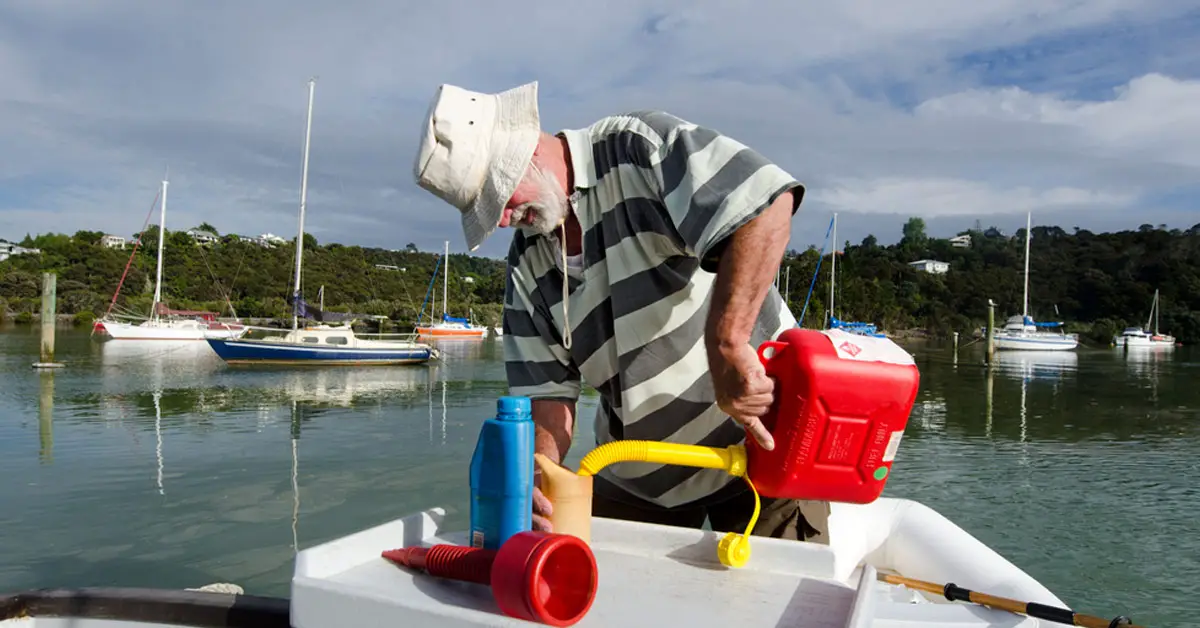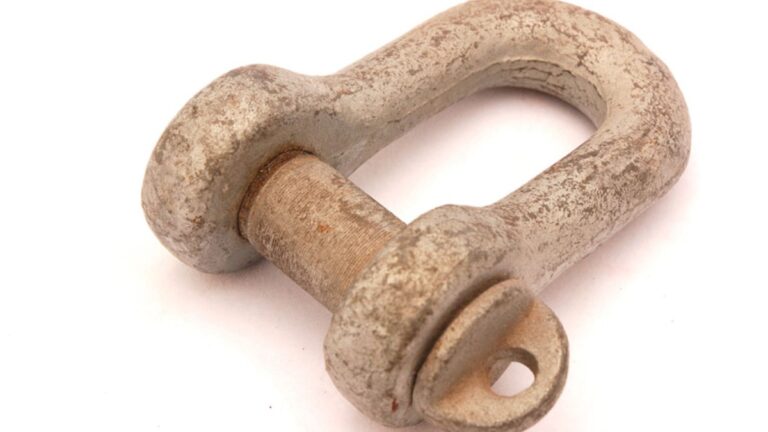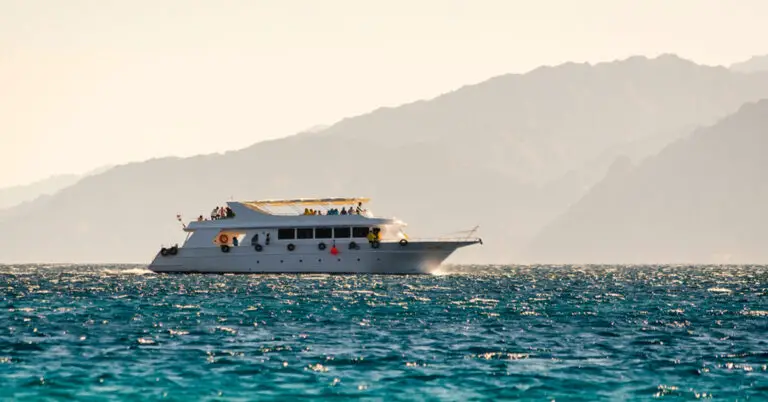How Long Does Gas Stay Good in a Boat? Ensuring Optimal Performance on the Water
If you are a boat owner, you may be wondering how long the gas in your boat can last. Unlike cars, boats are not used as frequently and can sit for extended periods without being used. The quality of the gas in your boat can deteriorate over time, which can cause problems when you finally do take your boat out on the water.
Gasoline stored in a boat’s fuel tank can stay good for approximately 1 to 3 months without a stabilizer. If a fuel stabilizer is used, this lifespan can be extended to a year or even longer, depending on storage conditions and the stabilizer used.
It’s not just about ensuring your tank is filled; it’s also about the quality and vitality of that fuel over time. This essential yet underappreciated facet of boat maintenance can greatly impact your performance on the water and deserves your careful attention.
In this article, we will explore the factors that affect how long gas stays good in a boat and provide tips on how to maintain the quality of your boat’s fuel.
Understanding Gasoline Degradation: A Basic Overview
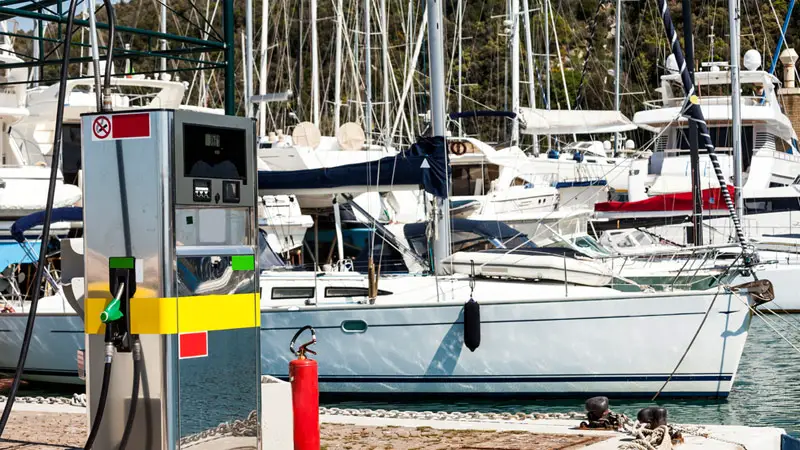
Gasoline is a complex blend of hydrocarbons designed to ignite under specific conditions, providing the energy required to power your boat. However, the characteristics that make gasoline an excellent fuel also make it susceptible to degradation over time. This process begins when gasoline is produced and accelerates once exposed to oxygen, heat, and light.
In simpler terms, when gasoline degrades, the lighter and more volatile components evaporate, leaving behind heavier elements. These heavier components, often called varnish or gum, can stick to engine parts and cause various operational problems, such as reduced performance, poor fuel efficiency, and even engine failure.
As gasoline degrades, it can also become more susceptible to contamination, including water intrusion and microbial growth, further impacting its fuel efficacy.
The Lifespan of Fuel in Your Boat’s Tank: A Closer Look
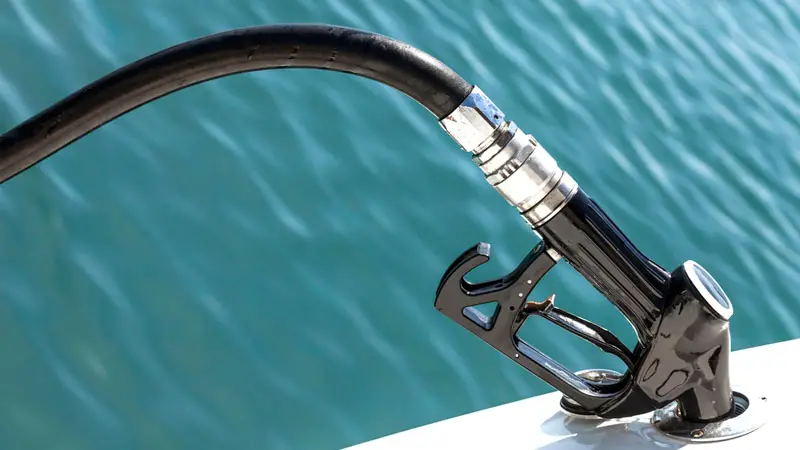
Fuel degradation is an inevitable process that begins when it’s produced. However, the rate of gasoline degradation can vary significantly depending on several factors. In a boat’s fuel tank, gasoline without additives or stabilizers typically stays fresh for about 1 to 3 months under optimal conditions. This is a rough estimate, and the actual duration may be shorter or longer based on the quality of the fuel, storage conditions, and other factors.
Even within this short timeframe, the fuel can degrade to a point where it’s no longer ideal for your boat’s engine. Degraded fuel can cause many problems, ranging from reduced engine performance to complete engine failure. Therefore, boat owners must understand the factors affecting fuel lifespan and take appropriate measures to ensure optimal performance.
- Quality of Fuel: Not all fuels are created equal. The initial quality of the fuel, including its octane rating and any additives it may contain, can influence how long it lasts.
- Ethanol Content: Modern gasoline often contains ethanol, which can absorb atmospheric water. This can lead to phase separation, where the water-ethanol mix settles at the bottom of the tank, leading to potential engine damage.
- Storage Conditions: Exposure to heat, light, and oxygen can accelerate the degradation of gasoline. Keeping the fuel tank full minimizes the amount of oxygen interacting with the fuel.
- Use of Fuel Stabilizers: Fuel stabilizers can significantly extend the lifespan of gasoline by slowing down the oxidation process. They can help keep the fuel fresh for up to a year.
- Frequency of Use: Regularly using your boat can help keep the fuel fresh. When the boat sits idle for extended periods, the gasoline in the tank has more time to degrade.
- Maintenance of the Fuel System: Regular maintenance of your boat’s fuel system can also affect lifespan. This includes ensuring that the fuel lines are clear, the fuel filters are clean, and there’s no water or sediment in the fuel tank.
The Role of Fuel Stabilizers in Prolonging Gasoline Quality
Fuel stabilizers play a crucial role in maintaining the quality of gasoline stored in your boat’s tank over extended periods of inactivity. They work by slowing the oxidation rate, a primary process contributing to gasoline degradation.
When gasoline oxidizes, it forms gums and varnish that can clog fuel lines, injectors, and carburetors, hampering your boat’s performance. Fuel stabilizers contain antioxidants that delay this oxidation process, thus extending the life of the gasoline.
Besides, stabilizers often contain corrosion inhibitors, protecting metal components of the fuel system from moisture and ethanol-induced damage. They also include detergents that help keep the fuel system clean.
It’s important to note that stabilizers work best when added to fresh gasoline. Adding a stabilizer to old or degraded fuel is less effective and may not reverse any damage already done.
Fuel stabilizers are particularly recommended for boats during periods of inactivity or storage, for instance, during the winter months. They can keep the gasoline fresh for up to a year or even longer, ensuring your boat is ready to go when you are and helping you avoid expensive repairs and inconvenient breakdowns.
Consequences of Using Stale Fuel in Your Boat
Using stale or degraded gasoline in your boat’s engine can lead to many problems. Over time, the volatile components in gasoline evaporate, leaving behind heavier components that form deposits in the engine and fuel system.
These deposits can impact the engine’s performance, fuel efficiency, and lifespan. Furthermore, stale fuel can become contaminated, leading to corrosion and damage to various parts of the boat’s fuel system.
- Reduced Engine Performance: Stale fuel can lead to poor combustion, which results in lower engine power and performance. The boat may struggle to reach its top speed or exhibit inconsistent acceleration.
- Poor Fuel Efficiency: As stale fuel doesn’t combust efficiently, your boat’s engine may consume more fuel than usual to deliver the same level of performance, leading to increased fuel costs.
- Engine Damage: The deposits formed from stale gasoline can clog fuel lines, injectors, and carburetors, potentially causing serious damage to the engine. In severe cases, it might require an overhaul or replacement of the engine.
- Corrosion and Wear: If water has been absorbed by the fuel (especially ethanol-blended fuel), it can lead to corrosion of the fuel system and engine parts. This decreases the lifespan of these components and compromises their functionality.
- Starting Difficulties: A common sign of stale fuel is difficulty starting the engine. This is because the volatile components that aid in ignition evaporate over time, making the fuel less combustible.
In short, using stale fuel can result in costly repairs and inconvenient breakdowns and could even render your boat unusable until fixed.
Preventive Measures to Maintain Optimal Boat Fuel Performance
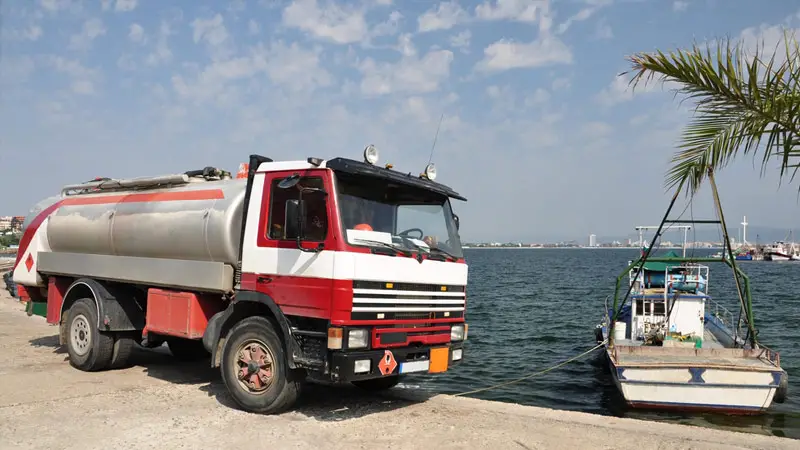
Maintaining optimal fuel performance isn’t just beneficial for your boating experience, it’s also a vital part of responsible boat ownership. Here are some preventive measures you can take to ensure that the gasoline in your boat remains fresh and effective:
- Use Quality Fuel: Always opt for high-quality gasoline, which often contains additives and detergents to enhance the fuel’s lifespan and help keep your engine clean.
- Avoid Overstocking: While storing large quantities of fuel may seem convenient, it increases the risk of gasoline degradation. Try to purchase only the amount you expect to use within the next few weeks or months.
- Minimize Oxygen Exposure: Keep your boat’s fuel tank as full as possible to reduce the amount of oxygen in the tank, which slows down fuel degradation.
- Use Fuel Stabilizers: Fuel stabilizers can significantly extend the life of gasoline, making them a worthwhile investment for boat owners, especially during periods of extended inactivity.
- Regularly Use Your Boat: Frequent use of your boat ensures that the gasoline doesn’t sit idle for long periods, keeping it fresher.
- Maintain Your Fuel System: Regular checks and maintenance of the fuel system can prevent issues like water contamination and clogging from sediment or deposits. This includes inspecting and cleaning fuel lines and filters and ensuring a tight seal on the fuel tank to prevent water intrusion.
- Store in Cool, Dry Places: If you store gasoline in cans for later use, ensure the storage area is cool and dry. Heat and moisture accelerate fuel degradation.
By adhering to these preventive measures, you can extend the lifespan of your boat’s gasoline, maintain optimal engine performance, and avoid unnecessary repair costs.

